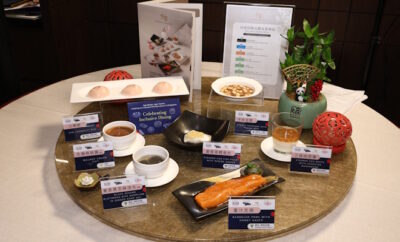
Health x Wellness
Eat Well, Live Well: How Your Diet Can Help Protect Against Prostate Cancer
In Singapore, prostate cancer is the most common cancer among men. But small, daily food choices may help reduce your risk — and improve your overall health.
Food is more than fuel. It’s one of the body’s most powerful tools for health. And when it comes to prostate cancer — the most common cancer among men in Singapore — what you eat could make a meaningful difference.
Research shows that certain dietary habits may increase the risk of prostate cancer, while others may help protect against it. Here’s what to know — and what to put on your plate.
What Is Prostate Health and Prostate Cancer?
The prostate is a small gland in the male reproductive system, located just below the bladder and in front of the rectum. It plays a key role in producing semen, the fluid that carries sperm.
As men age, the prostate is prone to several conditions:
- Prostatitis: inflammation or infection of the prostate
- Benign prostatic hyperplasia (BPH): non-cancerous enlargement of the prostate
- Prostate cancer: abnormal growth of cells in the prostate that can form tumours and potentially spread to other parts of the body
Prostate cancer often develops slowly and may not cause symptoms in its early stages. When symptoms do appear, they may include:
- Difficulty urinating or increased frequency
- Blood in urine or semen
- Pain in the back, hips or pelvis
- Erectile dysfunction
Risk factors include age (especially over 50), family history, obesity, and certain dietary patterns. While the exact cause is not fully understood, early detection through screening can significantly improve outcomes.

Foods to Eat Less Of
To reduce your risk of prostate cancer, consider cutting back on:
- Unhealthy fats: Saturated fats (from red meat, processed meats, and high-fat dairy) and trans fats can promote inflammation and hormonal changes linked to cancer development.
- Red and processed meats: These are associated with higher cancer risk, especially when cooked at high temperatures.
- Western-style diets: Diets high in processed foods, refined carbohydrates, and low in fruits and vegetables are linked to poorer outcomes.
- Excessive dairy and calcium: Some studies suggest a possible link to increased risk, so moderation is advised.
Foods to Eat More Of

Protect your prostate with a diet rich in:
- Plant-based foods: Vegetables, fruits, legumes, and whole grains are packed with antioxidants and fibre.
- Cruciferous vegetables and tomatoes: Broccoli, kale, cauliflower, and tomatoes (rich in lycopene) may help protect cells from damage.
- Omega-3-rich foods: Fatty fish like salmon and sardines, as well as flaxseeds and walnuts, may slow cancer cell growth.
- Mediterranean and DASH-style diets: These focus on healthy fats, lean proteins, and plenty of plant-based foods — and are linked to lower risk of aggressive prostate cancer.
Lifestyle Habits That Matter
- Watch your weight: Obesity is linked to poorer prostate cancer outcomes.
- Limit alcohol and avoid tobacco: Both are associated with increased cancer risk.
Improving prostate health does not require a complete overhaul. Start with small, sustainable changes: swap processed meats for legumes, add more vegetables to your meals, and choose whole grains over refined ones.
Early Detection Saves Lives
From now until 31 July 2025, men in Singapore can register for a free prostate cancer screening through the 365 Cancer Prevention Society’s #My1stProstateCheck campaign. Learn more about eligibility and register at 365cps.org.sg/my1stprostatecheck. Donations to support the campaign are also welcome via Giving.sg.
Food tips and recommendations provided by 365 Cancer Prevention Society’s senior dietitian, Ms Jocelyn Fong.
Photo by Sam Moghadam and by Nicola Zhukov on Unsplash






